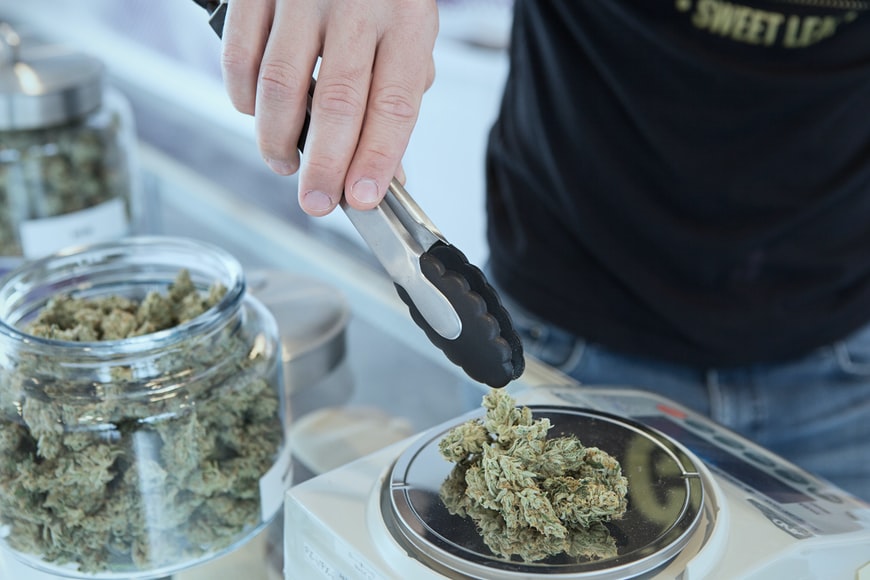Medical marijuana is a hot-button topic now more than ever. And with good reason.
Out of the 50 United States, 36 (37, if you count the District of Columbia) have legalized the use of medical marijuana. And there are likely more states that will continue to legalize it in the coming years.
Bear in mind, however, that legalized medical marijuana means different things everywhere. Each state has its own rules and requirements about what medical marijuana cardholders can and cannot do, like online purchases from retailers like purplepenthouse, or the type of illnesses it can be used for.
If you’re one of the growing numbers of people who are interested in potentially trying it yourself, there are things to consider. Here is how to decide whether medical marijuana is right for you.
1. Does Your State Approve of What Ails You?
Remember what we said about different states having different requirements? Before you start to hope that maybe medical marijuana can cure your affliction, discover if the said affliction is a qualifying condition in your state.
For example, many states approve medical marijuana use for patients who suffer from chronic pain. To prove they have chronic pain, they of course need medical documentation. In some states, it is possible to apply for a marijuana card online. For instance, you can conveniently apply for a West Virginia medical marijuana card online through an easy and straightforward process, and any evaluations are conducted by either a webcam or telephone call. You’re even able to renew your marijuana card online too!
But consider a state like Arkansas. They have approved medical marijuana use, but they do not list chronic pain as a qualifying reason. They do, however, list “intractable pain not responsive to traditional drugs.”
This may sound similar to chronic pain, but it ensures that you and your doctor have tried every other avenue and that medical marijuana is the final possible solution for pain management.
It illustrates how you must read the fine print when it comes to what your state does and does not approve as an ailment eligible for medical marijuana use.
Also, compare states like New York and Florida. Perhaps unsurprisingly, Florida is more stringent about their medical marijuana laws, wherein only conditions like cancer, HIV/AIDS, and epilepsy are qualifying conditions.
New York, on the other hand, includes caveats like spinal cord injury with spasticity, neuropathy, and any condition that may usually be treated with opioids.
Research your state, and if your condition qualifies, at least you know for sure it’s even a possibility.
2. Do You Want to Get High With Your Supply?
Another way to help you decide if medical marijuana is correct for you is to think about your intentions.
Is it simply to reap the health benefits of marijuana’s CBD compound? Or, are you more interested in the psychoactive effects of marijuana’s THC compound?
Many states have restrictions on the type of marijuana used in their programs. So if you’re hoping to possibly use your medical marijuana card to get high, check to see if it’s even a slim possibility in your state first.
3. Does Your State Allow Recreational Use? And What are the Differences?
Some states have even gone one step further and legalized marijuana for recreational use, meaning you don’t even need a medical card to access it all. One such state is Washington, which legalized recreational marijuana all the way back in 2012, long before the conversations and increased interest in it that we have today. Because of this, people across the state are able to make use of things like these dispensary deals in Seattle to get their marijuana for less than they would perhaps expect to pay, which is always a welcome thing.
If your state legalized recreational use, you may wonder if you need a medical marijuana card at all.
4. How Will Your Medical Marijuana Use Affect Your Travels?
Are you someone who travels a lot? Even if you travel only occasionally, your medical marijuana card will not be valid everywhere.
Only a handful of states and territories allow out-of-state visitors with a valid medical marijuana card to purchase medical marijuana while visiting.
These U.S. states and territories include:
- Arizona
- Arkansas
- Hawaii
- Maine
- Michigan
- Nevada
- New Hampshire
- New Mexico
- Oklahoma
- Puerto Rico
- Rhode Island
- Washington, D.C.
So if you have a big conference coming up in California in the spring and you’re traveling from Utah, you better bring enough medical marijuana with you before you leave home.
Traveling, in general, is extra tricky when you carry a medical marijuana card and your stash. Read the Transportation Security Administration’s (TSA) stance on flying as a medical marijuana holder.
5. Ensure You Know How to Handle a Dispensary Visit
If you feel like you’ve decided medical marijuana is right for you at this point, we still have one crucial piece of advice.
Never walk into your first medical marijuana dispensary without knowing what to expect.
Sure, your local dispensary will likely be staffed by friendly, knowledgeable people keen to help you. But you also definitely want to have the right information to provide them.
To that end, check out this blog about how to shop at a dispensary for the first time by Veriheal. They also share more information about how to obtain your medical marijuana card.
Conclusion
These are the main considerations when deciding whether medical marijuana is right for you.
Only you can make that choice (and, well, your doctor and state laws!). And hopefully these tips will guide your decision.

